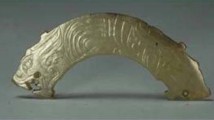Abstract
I use Freud’s theory of the Oedipus complex to illuminate Fanon’s diagnosis of the widespread breakdown of intersubjective relations in the colonial Antilles. I argue that the Oedipus complex is a system of symbolization that constitutes the subject as a unified self. The colonial context, however, makes this unification impossible. Fanon claims that what he calls the phobogenic object allows the subject to constitute itself in opposition to the world by directing the super-ego’s aggression outward at this phobogenic object. However, once the Antillean child, who has previously considered itself non-black and has been structured by a black phobogenic object, “discovers” that it is itself black through contact with the white man, the direction of the super-ego is reversed and the super-ego attacks the black ego, which it understands as phobogenic. The result is the endemic condition of a feeling of inferiority among the colonial population. The only way out of this problem is a widespread reorganization of the process of social symbolization through revolutionary violence, in which the subject is stripped bare of its symbolic commitments and starts to reconstruct itself anew, reconstituting the colonial master as the phobogenic object instead.
Similar content being viewed by others
Notes
I use the term ‘ontological account’ in the way I have elaborated it in my book Hegel, Freud and Fanon: the Dialectic of Emancipation. I there distinguish between three levels of analysis, the ontological level, the metapsychological level and the psychological level. The ontological level is the subject’s organization around its striving for freedom as self-integration. This striving receives a structure at the metapsychological level and is experienced in everyday life at the psychological level. See Bird-Pollan, 2014 pp. 17–20.
In order to engage in my interpretation, I proceed from what I consider to be a basic Freudian perspective, but when it is necessary I employ concepts from object relations. I do not make explicit use of Lacan, though some concepts I employ may be reminiscent of certain things he says. This is chiefly because Lacan’s theory too harkens back to the idealist heritage in an unabashedly philosophical way. This, to my mind, is a virtue; nonetheless, Lacan and I differ in a number of respects.
In qualified agreement with Jung’s analysis of symbols, Fanon writes: “The fact is that the Antillean has the same collective unconscious as the European” (1952, p. 168). That is, the French educational system in the colonies teaches the Antillean child to identify with the same ego-ideals and phobogenic objects as mainland white French children. But the deeper point for Fanon, of course, is that this parallel is only a parallel in content. It is not, in fact, the black which is the universal symbol for evil but only the culturally imposed one. Fanon writes: “The collective consciousness is quite simply the repository of prejudices, myths, and collective attitudes of a particular group” (p. 165).
For an earlier version of my analysis of this question see Bird-Pollan (2012). For a much more detailed account, see Bird-Pollan, (2014)
References
Bion, W.R. (1962) The psycho-analytic study of thinking. International Journal of Psycho-Analysis 43: 306–310.
Bird-Pollan, S. (2012) Fanon: Colonialism and the critical ideals of German idealism. Critical Horizons 13 (3): 377–399.
Bird-Pollan, S. (2014) Hegel, Freud and Fanon: The Dialectic of Emancipation. Lanham, MD: Rowman and Littlefield.
Brandom, R. (1994) Making it Explicit: Reasoning, Representing, and Discursive Commitment. Cambridge, MA: Harvard University Press.
Brandom, R. (2000) Articulating Reasons: An Introduction to Inferentialism. Cambridge, MA: Harvard University Press.
Brandom, R. (2009) Reason in Philosophy: Animating Ideas. Cambridge, MA: Harvard University Press.
Fanon, F. (1952, 2008) Black Skin, White Masks. New York: Grove Press.
Fanon, F. (1961, 2004) The Wretched of the Earth. New York: Grove Press.
Freud, A. (1967) The Ego and the Mechanisms of Defense. New York: International Universities Press.
Freud, S. (1914, 1953–1974) On narcissism: An introduction. Standard Edition 14. London: Hogarth Press, pp. 73–102.
Freud, S. (1915, 1953–1974) Instincts and their vicissitudes. Standard Edition 14. London: Hogarth Press. pp. 109–140.
Freud, S. (1920, 1953–1974) Beyond the Pleasure Principle. Standard Edition 18. London: Hogarth Press. pp. 1–64.
Freud, S. (1921, 1953–1974) Group Psychology and the Analysis of the Ego. Standard Edition 18. London: Hogarth Press, pp. 69–143.
Freud, S. (1923, 1953–1974) The Ego and the Id. Standard Edition 19. London: Hogarth Press, pp. 12–66.
Freud, S. (1924, 1953–1974) The economic problems of masochism. Standard Edition 19. London: Hogarth Press. pp. 159–170.
Freud, S. (1930, 1953-1974) Civilization and its Discontents. Standard Edition 21. London: Hogarth Press. pp. 64–145.
Freud, S. (1950, [1895]) Project for a scientific psychology. Standard Edition 1. London: Hogarth Press, pp. 283–387.
Korsgaard, C.M. (1996) The Sources of Normativity. Cambridge: Cambridge University Press.
Korsgaard, C.M. (2009) Self-Constitution: Agency, Identity, and Integrity. Oxford: Oxford University Press.
Lacan, J. (1966, 1977) The mirror stage as formative of the function of the i as revealed in psychoanalytic experience. In: Écrits: A Selection. New York: Norton, pp. 1–7.
Layton, L. (2014) Normative unconscious processes. In: T. Teo (ed.). Encyclopedia of Critical Psychology. New York: Springer.
Lear, J. (1998) Love and its Place in Nature: A Philosophical Interpretation of Freudian Psychoanalysis. New Haven, CT: Yale University Press.
Lear, J. (2005) Freud. New York: Routledge.
McCulloch, J. (1983) Black Soul White Artifact: Fanon’s Clinical Psychology and Social Theory. Cambridge: Cambridge University Press.
Ruti, M. (2012) The Singularity of Being: Lacan and the Immortal Within. New York: Fordham University Press.
Author information
Authors and Affiliations
Rights and permissions
About this article
Cite this article
Bird-Pollan, S. Fanon, Freud and the psychological origins of colonial oppression. Psychoanal Cult Soc 20, 67–83 (2015). https://doi.org/10.1057/pcs.2015.9
Published:
Issue Date:
DOI: https://doi.org/10.1057/pcs.2015.9




